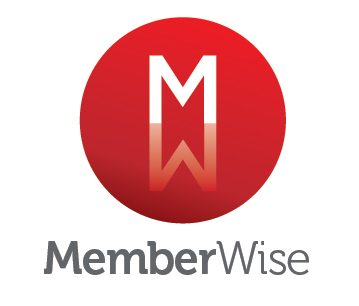MemberWise Solutions Day (3 April 2025, Novotel London West) provided valuable insights and practical strategies to help membership organisations navigate evolving challenges and opportunities, focusing on member engagement, digital transformation, and commercial innovation.
Rich Gott, Chair of MemberWise (www.memberwise.org.uk), opened the day by addressing critical sustainability concerns faced by the sector. He highlighted that operational costs frequently exceed the income generated from membership subscriptions, creating a structural deficit in many organisations. Gott emphasised the urgency of diversifying income streams, optimising resource allocation, and strategically increasing the intrinsic value of membership offerings. He recommended organisations perform an in-depth audit of their activities to identify and eliminate wasteful processes, which often consume significant operational resources. Gott also encouraged delegates to adopt a more targeted approach to member segmentation, clearly articulate their value propositions, and communicate effectively to different audience segments. Income diversification methods such as consultancy services, affinity schemes, and leveraging data for personalised cross-sell and upsell opportunities were suggested to complement traditional subscription models.
Dave Abraham, CEO at Wattle (www.wearewattle.com), offered critical insights into overcoming challenges associated with digital transformation projects in membership organisations. Abraham described frequent pitfalls, such as unclear project visions, departmental silos, and inadequate strategic objectives, often exacerbated by resource turnover and internal political dynamics. He emphasised the importance of defining clear, measurable outcomes rather than getting bogged down in detailed technical specifications too early in projects. Abraham proposed a structured ‘what – why – outcome’ approach, ensuring that technology investments align closely with overarching organisational goals. He underlined that successful digital transformation depends not only on technology but also on appropriate organisational structure, clear roles, responsibilities, and accountability to facilitate continuous improvement and reduce inefficiencies.
Tab, Customer Success Director at GRM Digital (www.grm.digital), expanded further on digital transformation challenges. He pointed out that many large-scale transformation projects fail due to user resistance, lack of adoption, and rapidly evolving requirements during lengthy implementation phases. Rather than large-scale transformation efforts, Tab advocated for a continuous, incremental approach, termed ‘digital evolution’, which mitigates risks and enables agile responses to emerging challenges. GRM Digital recommends adopting MACH architecture (Microservices, API-first, Cloud-native, and Headless) to allow flexibility, modular upgrades, and continuous improvement without needing significant system overhauls. Tab also underscored the importance of establishing clear digital maturity benchmarks and using robust analytics to inform ongoing development and decision-making processes.
Finian Quinn of Bluewave Technology (www.bluewavecx.com), alongside Findock (www.findock.com), presented the capabilities of Salesforce’s comprehensive ecosystem for enhancing member experiences. Quinn demonstrated how Salesforce Customer 360 enables organisations to maintain a single integrated view of members, streamlining processes from marketing automation to payment reconciliation. Salesforce’s Marketing Cloud and Data Cloud deliver advanced segmentation, personalisation, and predictive analytics capabilities, significantly enhancing member engagement and driving operational efficiencies. These tools allow membership organisations to create automated, personalised member journeys, improving retention, satisfaction, and ultimately revenue growth through strategic upselling and cross-selling opportunities.
The speed networking sessions allowed delegates to share and discuss their key challenges, revealing common themes across the sector. Key challenges identified included difficulty accessing affordable CIO and CTO-level expertise, challenges in leveraging digital transformation investments due to change management issues and user resistance, difficulties in recruiting new audiences to diversify income, and Boards underestimating the specialist skills required to run modern membership organisations effectively.
Tom Vidjak from D2L (www.d2l.com) showcased advanced digital learning platforms as powerful tools for driving member engagement, growth, and financial sustainability. Vidjak demonstrated how tailored learning experiences, supported by D2L’s Creator+ and Lumi AI suite, can significantly enhance user interaction, retention, and success rates. D2L’s learning platform provides deep analytics, offering membership organisations clear visibility into member engagement, behaviour patterns, and learning outcomes. This enables targeted interventions, content optimisation, and personalised learning pathways that strengthen member value propositions and generate additional revenue streams through premium content offerings and professional certifications.
In my session for Intercloud9 (www.intercloud9.co.uk), I emphasised that adopting commercial strategies does not conflict with mission-driven goals but rather enhances organisational sustainability and growth. Drawing on experience from Women’s Aid Federation, I described the critical steps in overcoming cultural resistance and developing clear, compelling value propositions aligned with member needs. A successful commercial strategy begins with extensive audience research to understand members’ pain points, followed by internal engagement to address resistance and articulate commercial goals clearly. Organisations must carefully craft products and services to reflect genuine member needs and ensure coherence between commercial offerings and core mission statements.
The Women’s Aid case study highlighted our success in shifting mindsets internally, resulting in significant commercial breakthroughs despite initial resistance. Through strategic repositioning, audience segmentation, and developing a suite of tailored products for corporate clients, such as policy development, specialised training, and helpline support, we were able to generate substantial income quickly, securing notable corporate partnerships, including Airbnb, Mastercard, and Fulham FC. This new commercial model did not compromise the organisation’s core values but instead strengthened its ability to deliver mission-critical support services.
Joe Stafford and Andre Silver from Instructure (www.instructure.com/en-gb), makers of the Canvas learning management system, concluded the day by exploring strategies for effective digital learning integration within membership organisations. Stafford and Silver emphasised the importance of creating cohesive and comprehensive learner experiences that align directly with individual career progression and lifelong learning journeys. Canvas Catalog, Canvas LMS, and Canvas Credentials were highlighted as key tools to deliver structured and personalised learning pathways. The Canvas platform allows members to easily discover, enrol in, and complete relevant courses, gaining recognised credentials. Learners can engage with diverse, interactive content, including embedded videos with quizzes and reflective submissions. Canvas’s Analytics Hub offers powerful AI-driven insights, enabling organisations to proactively identify learner behaviours such as attrition risks and engagement levels, enhancing their ability to continuously adapt and improve learning experiences.
The event reinforced several overarching principles essential for successful commercialisation and digital advancement within membership organisations:
- Clearly defining and articulating organisational objectives aligned with measurable outcomes.
- Embracing incremental and continuous improvement frameworks, rather than periodic, large-scale transformations.
- Leveraging advanced technology solutions strategically, aligning technical investments closely with organisational capabilities, roles, and responsibilities.
- Regularly assessing digital maturity, refining operational structures, and optimising member engagement through targeted analytics and ongoing market feedback.
The MemberWise Solutions Day 2025 provided attendees with actionable insights and proven strategies to effectively navigate the evolving landscape of membership organisations, ensuring they remain sustainable, responsive, and strategically aligned with member needs in an increasingly complex environment.









Leave A Comment